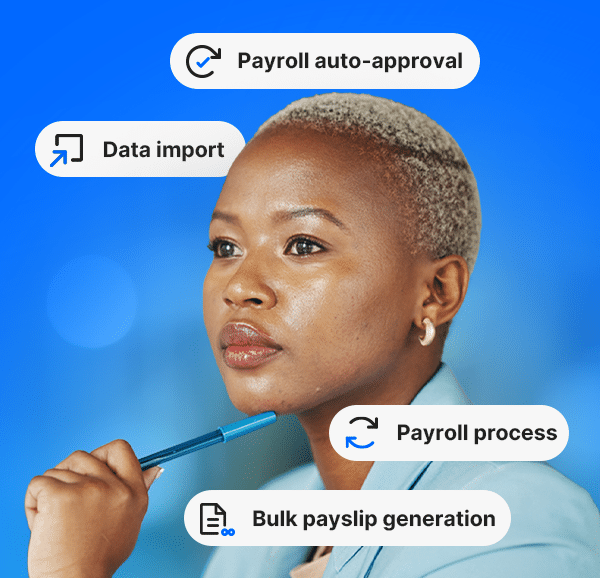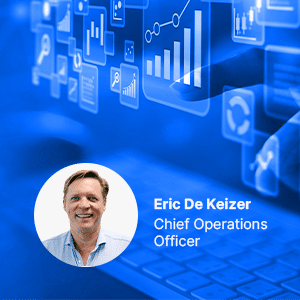Josep Maria Elias is CloudPay’s Chief Strategy Officer and has worked with CloudPay since 2018. Through his extensive payroll experience, and his work with businesses all over the world, he’s developed a unique take on how the role of employee experience is changing the dynamic for payroll. Read on to discover Josep’s exclusive insights.
Payroll has a unique opportunity, like never before, to lead a company’s employee engagement. And that’s because it can allow businesses to deliver excellent employee experiences at a time when they wouldn’t normally be able to.
The cost-of-living crisis, and wider economic turbulence globally, would usually be a period when employee experience efforts are cast to one side and core business functions are prioritized. Whether it’s paying people a fair wage, giving them a better work-life balance, or providing financial literacy resources, these are the things that get overlooked at times when employees need them most.
And that’s why it’s important to constantly invest and innovate with employee experience. More valued employees are happier, more motivated, more productive, more loyal – and all these things generate higher revenue and better business outcomes overall. According to a Forbes survey with 1200 IT leaders worldwide, 86% agreed that employee experience has a very positive impact on ROI.
How payroll can generate long-term gains:
Going into 2024, employee satisfaction levels are forecasted to drop globally, while the continuing shift towards flexible and hybrid working models will play a big part in overall happiness and wellbeing. So, what action can you take now with your payroll to bolster employee experiences, and set yourself up for better outcomes in the long term? I think there are three ways in which payroll can take the lead:
- Empowerment through interaction: payroll has often felt like a rather distant, siloed, and administrative process to many employees, and one that they only really come into contact with when something goes wrong. But advances in payroll technology mean that organizations now have unprecedented opportunities to get employees actively involved in their individual payroll. For example, this can include apps for setting up personal payroll preferences, and for proactively updating employee information.
Offering these kinds of services at the onboarding stage can really help organizations stand out from their competitors in the talent acquisition and retention stakes. If employees feel that payroll experiences are reliable, independent, and user-friendly, they will think far more positively of an employer, whether current or prospective. The easier employers can make it for workers to input their personal information, banking preferences, and necessary deductions the better. - Convenient, flexible pay: taking the above point to the next level, it’s now not only possible for employees to get paid as and when they wish, but it’s entirely practical to do so. On-demand pay apps like CloudPay NOW are enabling employees to accrue wages shift-by-shift, then autonomously log into their app and instantly withdraw however much of it they need to their bank account, whenever they need it.
This can be empowering and beneficial for any type of employee, but it’s a game-changer for seasonal work. Employees who know that they can work a shift and basically get paid for it immediately will prioritize those employment opportunities far higher. It could make the difference between them staying solvent and having to use loans and credit cards to cover shortfalls while waiting several weeks to be paid. This will have a significant, positive impact on your employee retention and reduce your absenteeism. - Attracting younger workers: on-demand pay has a major role to play in meeting the new demands of the latest entrants into the workforce: Generation Z. A high percentage of this generation consistently report that flexible pay is important to them. And when you consider that there are now more Gen Zers in the labor market than there are baby boomers, it’s essential to get on board with flexible pay and tap into all the new talent that’s out there.
But on-demand pay is only one part of the Gen Z payroll story. They tend to be more open about their finances, and are always on the lookout for support, whether it’s help and advice around financial management or flexibility in pay. Financial wellness tools and support services are therefore just as important as tools like CloudPay NOW in supporting workers who are starting out, and may have large debts to service across housing, transport, and education. In the long run, providing these services can help Gen Zers feel valued at work, and help them build trust in their employer.
In summary
This year marks an important time for businesses and payroll operations to rethink the relationship between payroll and employees. At a time when employee experience is more highly prized than ever, and when businesses may tend to overlook it, payroll can help keep experiences center-stage and make for happier, more successful employers and workforces alike. No longer does payroll have to be considered a mere administrative function: it’s the driver of a modern pay experience and a key contributor to employee retention and satisfaction while reducing absenteeism.
Explore a new world of payroll without the barriers of pay cycles, processing, or long lead times for payment. Take a closer look at our on-demand pay app CloudPay NOW


